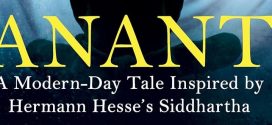Julian Barnes, 65- year old British writer, was declared as the winner of the 2011 Man Booker Prize for Fiction on Tuesday, 18th October in London, for his novella about a middle-aged man looking back on his younger days, “The Sense of an Ending”. The judges’ panel consisted of eminent writers and journalists including Matthew d’Ancona, Susan Hill, Chris Mullin, Gaby Wood and Dame Stella Rimington, former Director-General of MI5, as the Chair.
The short list for 2011 prize, as declared on 6th September, comprised of following books:
- The Sense of an Ending by Julian Barnes
- Jamrach’s Menagerie by Carol Birch
- The Sisters Brothers by Patrick deWitt
- Half Blood Blues by Esi Edugyan
- Pigeon English by Stephen Kelman
- Snowdrops by A. D. Miller
This list of nominations was received by the media and literary world as too “low-brow”. The matter was even more stirred with Dame Stella’s statement that she was looking for “readability”. Apart from the controversies, however, it took the judges hardly half an hour to decide on the winner as “The Sense of an Ending”, story of Tony Webster, a divorcee living an ordered and routine life, and the unraveling of his life as he revisits his school days.
Dame Stella explained the decision saying that: “We thought it was a beautifully written book, and a book that spoke to humankind in the 21st century. What this book does is unravel for us this person and who he really is, and it shows that his memory of what happened and his understanding of himself is actually quite wrong.” She also said that the book was exquisitely written, subtly plotted, and capable of revealing new depths with each reading and had the makings of a classic English literature.
As for the winner, this was the fourth time that Julian Barnes was in the race for the Booker Prize with his nominated works so far being “Flaubert’s Parrot” in 1984, “England, England” in 1998, “Arthur and George” in 2005 and “The Sense of and Ending” in 2011. The author had ventured to pass on caustic remarks on the Booker prize in past in his famous quote, “It drives publishers mad with hope, booksellers mad with greed, judges mad with power, winners mad with pride, and losers (the unsuccessful short-listees plus every other novelist in the country) mad with envy and disappointment.”
But, lady luck seems to have finally smiled on him and he declared himself relieved and delighted in receiving the honor after 27 years of his first nomination. He compared himself with Jorge Luis Borges, the Argentinian writer who was considered by the Nobel Prize committee year after year, but never won the prize.
 ThinkerViews – Views And Reviews Personal views and reviews for books, magazines, tv serials, movies, websites, technical stuff and more.
ThinkerViews – Views And Reviews Personal views and reviews for books, magazines, tv serials, movies, websites, technical stuff and more.



